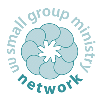March 2020 changed our worlds. Our May 2020 edition focused on how congregations were addressing the impact of COVID-19, primarily the introduction of electronic media such as Zoom. We were entering the unknown world that would change things we do, how we do them, and how our perspectives may change. The word pandemic entered our vocabulary in big letters, as if this were the first time that such an event had occurred.
Since then, we have experienced isolation, displacement, the impact of an emerging condition in COVID-19, choices that may put the 'rights' of the individual and the community - the first and seventh principles - at odds. We have felt the impact of the change, learned to meet “virtually” or missed personal connections. Small Group Ministry contacts have been vital for individuals and congregations. Many have found new ways to keep connected: some and regrettably, some have become inactive or closed. We talk about “when it's over” and “when the buildings re-open” and “when things get back to normal.”
So here we are, late summer 2021. Talking about re-opening, grappling with different stories of what is needed, what is possible and permissible and increasingly how each of our actions affect others. We are in a different phase of the pandemic - and still using that “pandemic” with the addition of “covid variants” to grapple with the implications.
The Multi-Platform Resources: A Guidebook by UUA Congregational Life Staff Group
https://www.uua.org/
is a comprehensive resource for the multiple considerations. Some specific references that address small groups, such as Small Groups and Covenant Groups are included in this edition. As you use this resource, keep in mind how the suggestions can relate to your own situation and Small Group/Covenant Group program. These resources include frameworks, starting points, tips and tools to help your congregation serve its mission in today's environment of virtual and in-person connection.
A Word About Language
“Hybrid” is a commonly used term for a mix of online and in-person components. New terminology is emerging. Lately we are using “multi-platform” to describe a combination of in-person and online options.
- Take Your Time: When COVID-19 struck in March of 2020, congregations quickly adapted their activities to be 100% online. We don't need to be in a hurry this time!
- Listen Deeply to One Another: There will be no one-size-fits-all answer to how to be inclusive in programming going forward. The work on justice, diversity, equity and inclusion we've been doing will serve us well as we center voices at the margins to make sure we don't exclude anyone from congregational life.
- Online is not “less than.” Online programming is likely to continue to be primary for quite some time. Online and in-person are equally real; each has its blessings.
- Be realistic. Don't feel compelled to do everything as a "both/and." Find a reasonable path forward, based on your resources and the capacity of your staff and volunteers.
Key Principles for Planning Multi-Platform Operations From The UUA President,
Part of Multi-Platform Resources: A Guidebook: Multiple Principles
By Susan Frederick-Gray
https://www.uua.org/
In her April 15, 2021, letter to UU congregations, UUA President Rev. Dr. Susan Frederick-Gray articulated these principles (excerpted here) that very much apply to Small Group Ministry.
- As a faith community, we root our decisions in the values of inclusion and consent. It's important that everyone who gathers in-person has the ability to consent to do so, so that no one is forced to choose between their congregation and the safety of themselves or their loved ones.
- Follow the science. Congregations should follow the latest CDC guidelines and local public health regulations to determine the best ways to move forward as the pandemic recedes. Our public health advisors have all stressed the dangers of this time and the need to remain vigilant.
- Go slow and be flexible. Now is the time to plan and consult with the people responsible and engaged in your programs. Take time to create a shared understanding of the risks. Given the ongoing risks, worship and other large gatherings should not be the first thing we return to in-person. Start with small groups, such as SGM/Covenant Groups.
- Finally, be humane and realistic with expectations of ourselves and others. Remember, the goal is not perfection. The most important values in this time are care and compassion. We've experienced a year of traumatic disruption and loss. Be realistic as leaders and convey realistic expectations to your congregations. There are well-founded concerns that multi-platform ministry will require additional work without additional staff and volunteer capacity. It's important to have honest conversations about our capabilities and expectations. And keep in mind that significant changes might be overwhelming even if dearly wanted.
Multi-Platform Options: Small Group Gatherings Keeping Connected
March 18, 2021
https://www.uua.org/
This section notes considerations for those meeting in person, inside or out, or mixed arrangements. It includes consideration for privacy and set-up for maximum ability to participate in multi-platform settings.
Covenantal Consent
By UUA Congregational Life Staff Group
https://www.uua.org/
“In covenantal communities, we are called to relationships of mutuality. Sometimes this requires taking time to listen deeply to one another's concerns and fears before making any decisions that might marginalize some in the community, or even to put members of the community at risk, either physically or mentally.
Before making decisions that impact the community as a whole, leaders should model a practice of inclusion, covenant, consent, and care for each other. This is especially true as we are making decisions about how to gather again in person.”

The original statement (https://www.uua.org/leadership/library/covenantal-consent) has been adapted here to focus on Small Group Ministry, by whatever name is used locally. The Session Plan that follows article includes this model.
Inclusion Plan events to address numerous factors and implications, ever mindful of who is included and who may be excluded. For example, who is vaccinated or not protected by vaccination. An event that is limited to those who are vaccinated is exclusionary and very effort should be made to provide virtual inclusion for the unprotected.
Distancing recommendations need to be considered for in person meetings.
Virtual or online meetings need to be available (electronic connections, equipment) and accessible (conducive and private space, medical issues such as hearing and vision).
Care Allow time for participants to express how they will feel with or without masks in their small group or at an outdoor event or to in person or “virtual/zoom” and listen to each other before deciding on changes. We may know many things about participants in our groups, but we may not have discussed these concerns as a group.
Consent Adopt a practice of consent among participants. Ask one another what is comfortable and safe. Respect what the others might need at this point in time even if you don't have the same needs. We know that—before hugging someone—we should ask first, then wait for a yes or no. Similarly, we should ask and wait for an answer before meeting without masks and maintaining distances.
Covenant Respect the wide range of ways people may be reacting to the CDC guidance around masks and distancing. This includes vaccinated people with compromised immune systems, parents of unvaccinated children, and others who don't yet find this guidance prioritizes their well-being. Our covenants call us to work through these differences.







